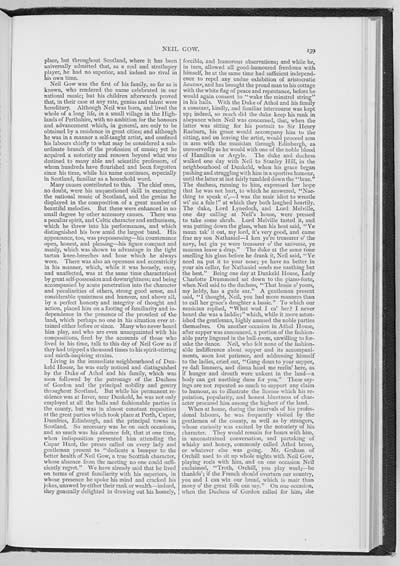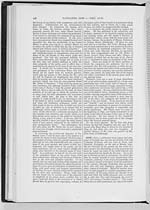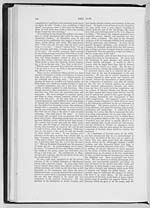139
place, but throughout Scotland, where it has been
universally admitted that, as a reel and strathspey
player, he had no superior, and indeed no rival in
his own time.
Neil Gow was the first of his family, so far as is
known, who rendered the name celebrated in our
national music; but his children afterwards proved
that, in their case at any rate, genius and talent were
hereditary. Although Neil was born, and lived the
whole of a long life, in a small village in the High-
lands of Perthshire, with no ambition for the honours
and advancement which, in general, are only to be
obtained by a residence in great cities; and although
he was in a manner a self-taught artist, and confined
his labours chiefly to what may be considered a sub-
ordinate branch of the profession of music; yet he
acquired a notoriety and renown beyond what was
destined to many able and scientific professors, of
whom hundreds have flourished and been forgotten
since his time, while his name continues, especially
in Scotland, familiar as a household word.
Many causes contributed to this. The chief ones,
no doubt, were his unquestioned skill in executing
the national music of Scotland, and the genius he
displayed in the composition of a great number of
beautiful melodies. But these were enhanced in no
small degree by other accessory causes. There was
a peculiar spirit, and Celtic character and enthusiasm,
which he threw into his performances, and which
distinguished his bow amid the largest band. His
appearance, too, was prepossessing�his countenance
open, honest, and pleasing�his figure compact and
manly, which was shown to advantage in the tight
tartan knee-breeches and hose which he always
wore. There was also an openness and eccentricity
in his manner, which, while it was homely, easy,
and unaffected, was at the same time characterized
by great self-possession and downrightness; and being
accompanied by acute penetration into the character
and peculiarities of others, strong good sense, and
considerable quaintness and humour, and above all,
by a perfect honesty and integrity of thought and
action, placed him on a footing of familiarity and in-
dependence in the presence of the proudest of the
land, which perhaps no one in his situation ever at-
tained either before or since. Many who never heard
him play, and who are even unacquainted with his
compositions, fired by the accounts of those who
lived in his time, talk to this day of Neil Gow as if
they had tripped a thousand times to his spirit-stirring
and mirth-inspiring strains.
Living in the immediate neighbourhood of Dun-
keld House, he was early noticed and distinguished
by the Duke of Athol and his family, which was
soon followed by the patronage of the Duchess
of Gordon and the principal nobility and gentry
throughout Scotland. But while his permanent re-
sidence was at Inver, near Dunkeld, he was not only
employed at all the balls and fashionable parties in
the county, but was in almost constant requisition
at the great parties which took place at Perth, Cupar,
Dumfries, Edinburgh, and the principal towns in
Scotland. So necessary was he on such occasions,
and so much was his absence felt, that at one time,
when indisposition prevented him attending the
Cupar Hunt, the preses called on every lady and
gentleman present to "dedicate a bumper to the
better health of Neil Gow, a true Scottish character,
whose absence from the meeting no one could suffi-
ciently regret." We have already said that he lived
on terms of great familiarity with his superiors, in
whose presence he spoke his mind and cracked his
jokes, unawed by either their rank or wealth�indeed,
they generally delighted in drawing out his homely,
forcible, and humorous observations; and while he,
in turn, allowed all good-humoured freedoms with
himself, he at the same time had sufficient independ-
ence to repel any undue exhibition of aristocratic
hauteur, and has brought the proud man to his cottage
with the white flag of peace and repentance, before he
would again consent to "wake the minstrel string"
in his halls. With the Duke of Athol and his family
a constant, kindly, and familiar intercourse was kept
up; indeed, so much did the duke keep his rank in
abeyance when Neil was concerned, that, when the
latter was sitting for his portrait to Sir Henry
Raeburn, his grace would accompany him to the
sitting, and on leaving the artist, would proceed arm
in arm with the musician through Edinburgh, as
unreservedly as he would with one of the noble blood
of Hamilton or Argyle. The duke and duchess,
walked one day with Neil to Stanley Hill, in the
neighbourhood of Dunkeld, when his grace began
pushing and struggling with him in a sportive humour,
until the latter at last fairly tumbled down the "brae."
The duchess, running to him, expressed her hope
that he was not hurt, to which he answered, "Nae-
thing to speak o',�I was the mair idiot to wrestle
wi' sic a fule!" at which they both laughed heartily.
The duke, Lord Lynedoch, and Lord Melville,
one day calling at Neil's house, were pressed
to take some shrub. Lord Melville tasted it, and
was putting down the glass, when his host said, "Ye
maun tak' it out, my lord, it's very good, and came
frae my son Nathaniel�I ken ye're treasurer o' the
navy, but gin ye were treasurer o' the universe, ye
maunna leave a drap." The duke at the same time
smelling his glass before he drank it, Neil said, "Ye
need na put it to your nose; ye have na better in
your ain cellar, for Nathaniel sends me naething but
the best." Being one day at Dunkeld House, Lady
Charlotte Drummond sat down to the piano-forte,
when Neil said to the duchess, "That lassie o' yours,
my leddy, has a gude ear." A gentleman present
said, "I thought, Neil, you had more manners than
to call her grace's daughter a lassie." To which our
musician replied, "What wud I ca' her? I never
heard she was a laddie;" which, while it more aston-
ished the gentleman, highly amused the noble parties
themselves. On another occasion in Athol House,
after supper was announced, a portion of the fashion-
able party lingered in the ball-room, unwilling to for-
sake the dance. Neil, who felt none of the fashion-
able indifference about supper and its accompani-
ments, soon lost patience, and addressing himself
to the ladies, cried out, "Gang doun to your supper,
ye daft limmers, and dinna haud me reelin' here, as
if hunger and drouth were unkent in the land�a
body can get naething dune for you." These say-
ings are not repeated so much to support any claim
to humour, as to illustrate the license which his re-
putation, popularity, and honest bluntness of char-
acter procured him among the highest of the land.
When at home, during the intervals of his profes-
sional labours, he was frequently visited by the
gentlemen of the county, as well as by strangers,
whose curiosity was excited by the notoriety of his
character. They would remain for hours with him,
in unconstrained conversation, and partaking of
whisky and honey, commonly called Athol brose,
or whatever else was going. Mr. Graham of
Orchill used to sit up whole nights with Neil Gow,
playing reels with him, and on one occasion Neil
exclaimed, "Troth, Orchill, you play weel;�be
thankfu'; if the French should overturn our country,
you and I can win our bread, which is mair than
mony o' the great folk can say." On one occasion,
when the Duchess of Gordon called for him, she

![]() Universal Viewer |
Universal Viewer | ![]() Mirador |
Large image | Transcription
Mirador |
Large image | Transcription
![]()

